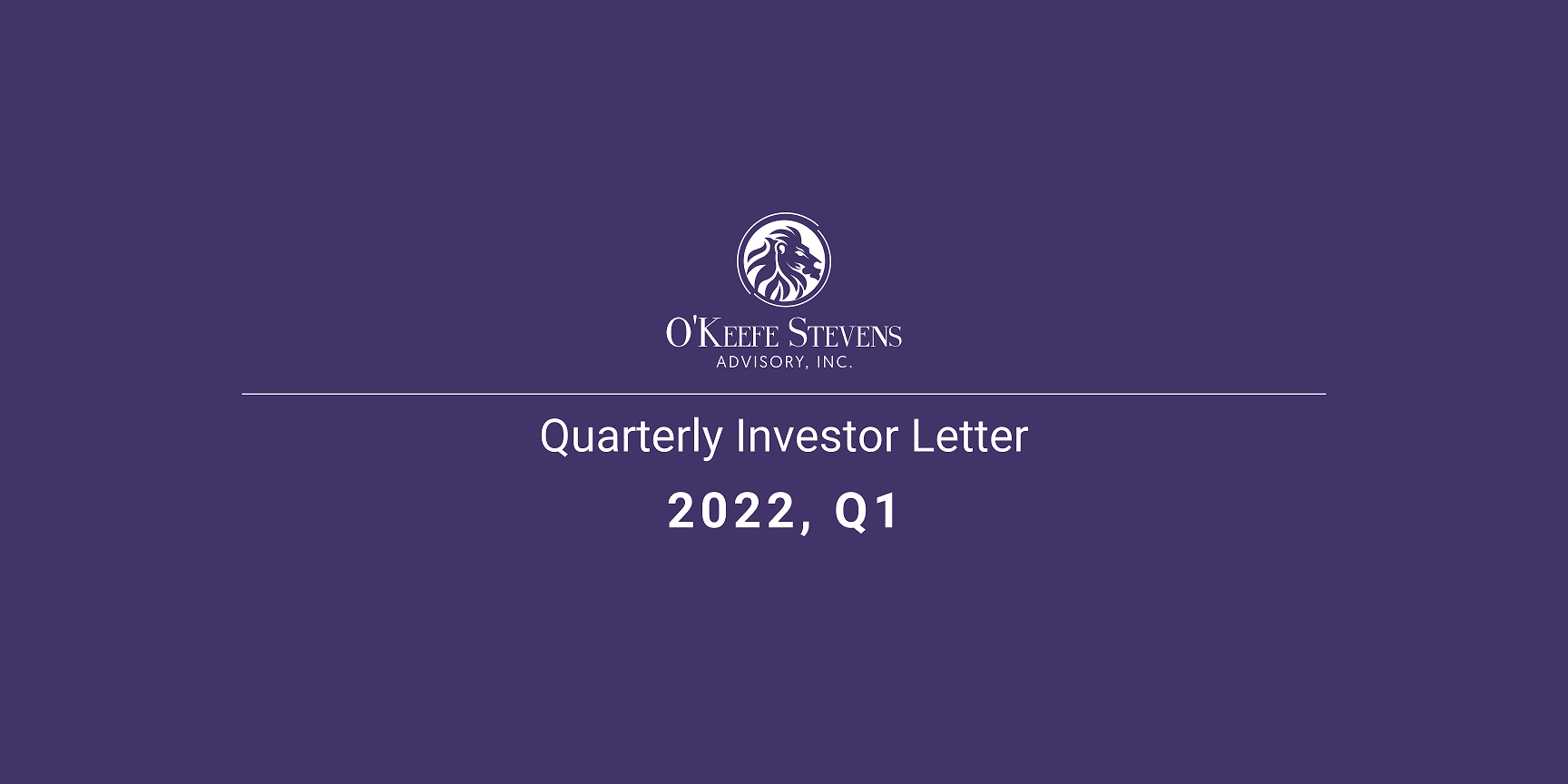Quarterly Investor Letter Q1 2022
Author: Dominick D’Angelo
Recent Thoughts – Management Incentives
What should an investor in a company expect from a management team? Honesty? Integrity? As business owners, we expect management to act in shareholder’s best interests, whether capital allocation decisions, performance bonuses, or day-to-day operations. As stewards of your capital, aligning ourselves with management teams with skin in the game is crucial. We believe those with significant capital to gain or lose would seek to maximize the value of their ownership interest, benefiting other shareholders along the way. Within the O’keefe Stevens portfolio, positions thought to have aligned management teams were proven incorrect recently, and others on our watchlist have exhibited similar fates.
Has the lack of active investment played a role in transforming corporate culture? We are typically passive owners, trusting management to act in stakeholder’s best interests. Even those that actively manage capital, such as ourselves, rarely (if ever) interact with management teams.
Unreasonable incentive compensation packages for management teams delivering minimal shareholder value are far too prevalent. Management should be appropriately aligned and incentivized to meet specific metrics driving results. For instance, achieving specific ROI measures, organic growth targets, or margin profile should be long-term drivers of business fundamentals. When compensated for revenue growth, or adjusted earnings that can border the line of deception, even if achieved, may be detrimental to long-term shareholder value.
EAF – Graftech was purchased by Brookfield Asset Management in 2015 and subsequently taken private as a downturn in the steel industry drove Graftech to the brink of Bankruptcy. Brookfield turned over the entire board and brought in David Rintoul as CEO in 2018. To no surprise, Brookfield granted the board and management team stock options to incentivize executives. However, a surprising announcement came in Q1 2021, where a change of control provision was sprung upon shareholders. Management and other employees received a one-time bonus of $89m due to Brookfield’s ownership stake declining below 30%. While I don’t have a problem with this type of incentive, this clause was never mentioned until the quarter prior to the incentive package vesting. I have been unable to locate this provision in the S-1 or 10-K. Analysts on the call were unaware of this provision as well. Since the incentive package was roughly an entire quarter’s worth of earnings, It was shocking to have this event occur.
BGCP/NMRK – On 12/30/2021, at 4:04 pm, NMRK put out a press release saying, “On December 28, 2021, Newmark Group, Inc. awarded to Howard W. Lutnick, the Company’s Chairman and principal executive officer, a one-time $50 million bonus award (the “Lutnick Award”) in consideration of his efforts in delivering superior financial results. These efforts included his management of the company and success in creating value for the company’s stockholders in connection with structuring, hedging, and monetizing the Nasdaq, Inc. common stock (the “Nasdaq Shares”) held by the company and the significant amount of income earned by the company related to these activities and the significant increase in value of such Nasdaq Shares over time.”
In 2013, BGCP sold their ESpeed trading platform to Nasdaq for $750m in cash and ~1m shares of NDAQ stock per year for 15 years. A clause in the sale agreement stated if Nasdaq were to sell the ESpeed platform, the remaining shares would immediately be granted to BGCP. In 2018 Newmark was spun-off from BGCP and was given the remaining shares of NDAQ to be received. In 2021, Nasdaq sold ESpeed to Tradeweb. Instead of receiving 1 million shares of NDAQ for the next seven years, they received ~7m shares at once. As mentioned above, hedging instruments were used; nonetheless, it was a significant windfall for NMRK.
A retroactive, one-time bonus was given to Howard because of the transaction. To clarify, NMRK’s Board of Directors gave Howard a bonus because Nasdaq sold the Espeed platform. Howard was not a part of the conversation between Nasdaq and Tradeweb and undoubtedly did not influence the transaction. $50m was approximately 1.3% of the market cap of NMRK at the time, and the value of the NDAQ stock received was ~$650m after taxes and forward agreements were settled. Roughly 8% of that value was given to Howard. When the original Espeed sale to Nasdaq occurred, NDAQ stock was trading in the $30’s, putting the original value of the shares to be received in the $450-500m range. From 2014-to 2021, NDAQ’s stock rose from $40 to $200. Did Howard have anything to do with this price appreciation? I think not. Did Espeed lead to value creation for NDAQ shareholders and potentially a source for the stock appreciation? Nasdaq paid $750m in cash + 15m shares of NDAQ and subsequently sold ESpeed to Tradeweb for $190m. Howard deserves some credit because he clearly got a phenomenal price for ESpeed.
Howard received this bonus because of the hedging activities and monetization of NDAQ shares. NMRK entered into a series of forward agreements with RBC at strikes between $81.57 and $107.10 to lock in a price of the NDAQ shares while retaining upside. Had this hedging program delivered significant shareholder value, some award may be deserved; however, on June 25th, when the transaction between Nasdaq and Tradeweb closed, NDAQ’s share price was… $185. THE HEDGING PROGRAM WAS A NET NEGATIVE TO SHAREHOLDERS, YET HE WAS GIVEN A BONUS FOR IT! Had the hedging program not been consummated, the cost of implementing the hedge would not have occurred, and thus the incremental capital would have remained with NMRK shareholders.
To summarize, the board paid Howard $50m for a transaction that he had nothing to do with and decreased shareholder value. This agreement was not in place during the original sale of Espeed in 2013 and was only retroactively given at the end of 2021. Lastly, to send this out the day before a holiday, after the market closes, they knew what they were doing. They tried to get this by shareholders.
If this wasn’t enough, there’s more. Howard is also the Chairman of BGC Partners, the company NMRK was spun out from. Howard has been on the record several times, most recently on 2/18 at the Credit Suisse Conference, saying “…so obviously you know we like the stock and I think it’s just incredibly undervalued” and “that’s how I think about things, and just start to show, wow, this company is deeply undervalued.” On the one hand, I agree with him. I think BGCP is a pretty cheap stock, especially compared to comps. On the other hand, why shouldn’t this company trade at a discount if the Chairman may give himself a bonus at a moment’s notice? Companies with questionable management teams ought to trade at a discount. One cannot undermine shareholders of a company, complain that another company of yours is undervalued, and think that the market should reward you with a proper valuation; it simply does not work like that. Typically I find sell-side analyst questions short-term orientated and more model-driven; however, Patrick O’Shaughnessy of Raymond James sums up my thoughts when he asked one simple question “Why should public shareholders have confidence in the governance abilities of Newmark’s Board?”
INTC – Intel announced they are removing stock-based compensation from non-GAAP earnings in 2022 to report results aligning with semiconductor peers. This may seem like a reasonable thing to do as comparability between peers becomes easier. On the other hand, what exactly is the point of adjusted earnings? It is not to conform to some industry norm or because the management teams need to make performance metrics. The point of adjusting earnings is to present results in a light that more closely reflects the actual underlying performance of the business. That is, backing out expenses that might be one-time in nature, such as legal or fire expenses. First off, share-based compensation is an actual expense. Decreasing my ownership stake in a company without receiving any compensation is not free. If a company paid its employees in all stock, would they add back the entire SBC? What a margin profile that would be. Second, should a company be worried about reporting results similar to other companies? Every company is unique. Management should not waste time determining what expenses should be excluded. Run the business, don’t worry about adjusting the numbers.
New Position – Donnelley Financial (DFIN)
In the first quarter, we initiated a new position in Donnelley Financial, a regulatory filing and deals solutions service provider. Donnelley is a relatively small company with a sub $1.5B market cap undergoing a business model transformation from a legacy lower margin paper/print business to a recurring high margin software and service provider. We are purchasing DFIN at a single-digit earnings multiple at times when comps are trading at 20x+. Donnelley has a long runway for growth, with little capital required. DFIN has an excellent management team, and we are excited to hold this business for the long term. To read our full write-up, please click here.
Portfolio Top 5 Holdings
At the end of Q1 22, our top 5 holdings represented ~38% of assets, with NVDA representing almost 19% of the portfolio. The remaining four include QCOM, DISCK, AMGN, and L. The concentration at the top of the portfolio declined slightly as some lower weighted positions have increased significantly to start the year. These names were primarily in the commodity space, which has seen strong price appreciation due to supply constraints.
Disclaimer
This document is for informational purposes only. O’Keefe Stevens Advisory is not providing any investment recommendations with the publishing of this document, and no firm performance data is included in this document.



No responses yet